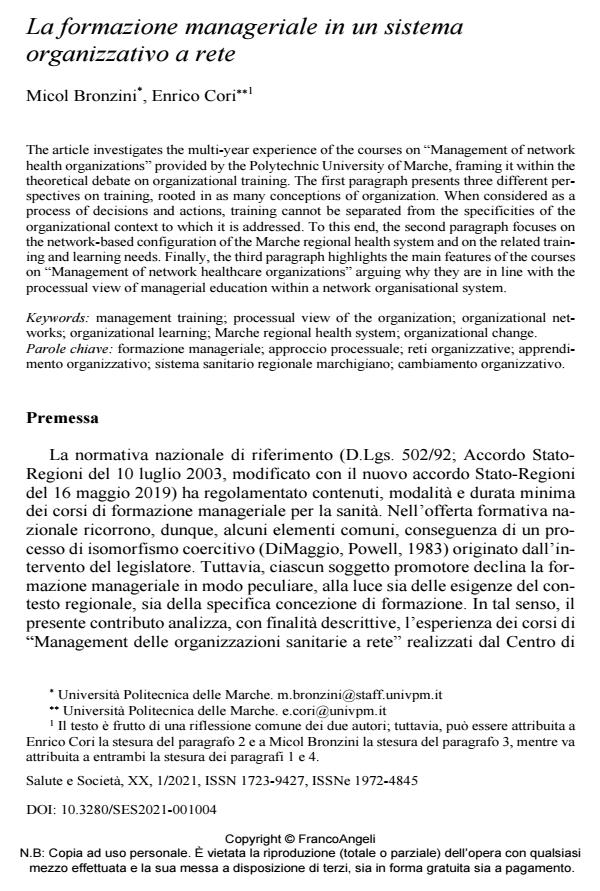La formazione manageriale in un sistema organizzativo a rete
Journal title SALUTE E SOCIETÀ
Author/s Micol Bronzini, Enrico Cori
Publishing Year 2021 Issue 2021/1
Language Italian Pages 16 P. 39-54 File size 248 KB
DOI 10.3280/SES2021-001004
DOI is like a bar code for intellectual property: to have more infomation
click here
Below, you can see the article first page
If you want to buy this article in PDF format, you can do it, following the instructions to buy download credits

FrancoAngeli is member of Publishers International Linking Association, Inc (PILA), a not-for-profit association which run the CrossRef service enabling links to and from online scholarly content.
The article investigates the multi-year experience of the courses on "Management of network health organizations" provided by the Polytechnic University of Marche, framing it within the theoretical debate on organizational training. The first paragraph presents three different per-spectives on training, rooted in as many conceptions of organization. When considered as a process of decisions and actions, training cannot be separated from the specificities of the or-ganizational context to which it is addressed. To this end, the second paragraph focuses on the network-based configuration of the Marche regional health system and on the related training and learning needs. Finally, the third paragraph highlights the main features of the courses on "Management of network healthcare organizations" arguing why they are in line with the pro-cessual view of managerial education within a network organisational system.
Keywords: Management training; processual view of the organization; organizational net-works; organizational learning; Marche regional health system; organizational change.
Micol Bronzini, Enrico Cori, La formazione manageriale in un sistema organizzativo a rete in "SALUTE E SOCIETÀ" 1/2021, pp 39-54, DOI: 10.3280/SES2021-001004